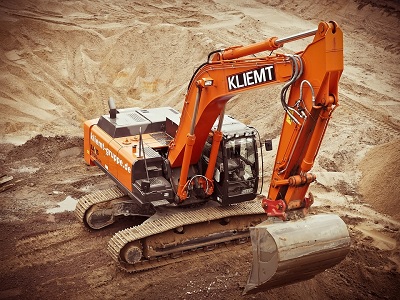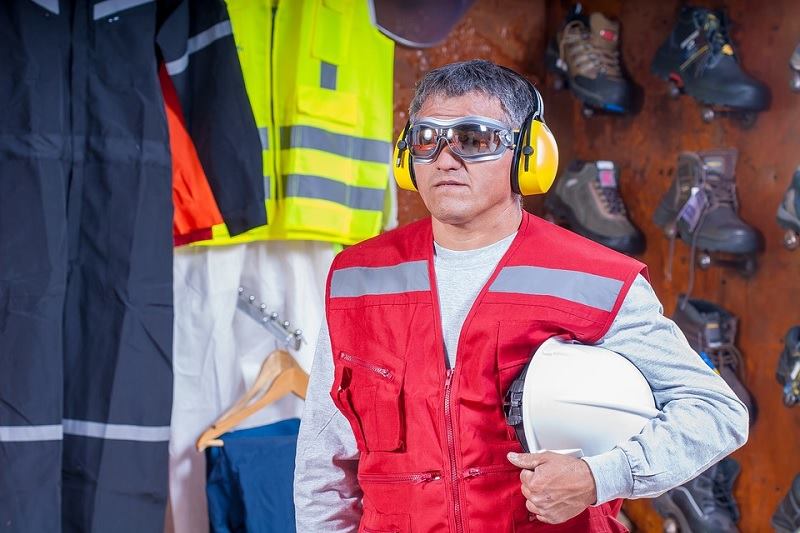As an Amazon Associate we earn from qualifying purchases.
It shouldn’t come as a surprise that noisy jobs give employees a higher chance of developing some form of noise-induced hearing loss.
In most countries, employers are required to provide their employees with hearing protection if they will be exposed to unsafe levels of noise.
In the UK, employers are obligated to provide employees with hearing protection if the daily noise exposure is above 85 dB (1).
Employees can be exposed to extremely unsafe levels of noise during their work, whether that’s unsafe bursts of noise or continuous background noise.
Even noises at 85 dB can cause gradual damage if you’re exposed for a long period of time, that’s about as loud as the inside of a tractor cab.
So, what jobs pose the biggest risk to the hearing of the employees?
Mining

The mining sector is a massive threat to the hearing of its employees due to the prevalence of loud machinery and the fact that the majority of workers in the mining industry are exposed (76%) (2).
This environment of loud machinery and high rates of noise exposure has led to as much as 17% of mining sector employees suffering from some form of hearing impairment (3).
Construction

Much like the mining sector, construction workers are exposed to lots of heavy machinery. Jackhammers (105 dB), bulldozers (107 dB), and cranes (102 dB) are all found at construction sites and have the potential to cause severe harm to hearing unless heavy-duty hearing protection is used (4).
Construction workers have a similarly high level of hearing impairment as miners, with as much as 16% of construction workers suffering some form of hearing impairment (3).
See the best ear defenders for construction here.
Carpentry

Carpentry exposes workers to a lot of loud machinery, much of which is handheld or operated close to the user. This proximity to the tools can cause exposure to noise to be much higher than you might think. A circular saw is about 99dB, which can start to cause gradual hearing damage after roughly 20 minutes of exposure (4).
Agriculture

Heavy machinery is a common theme amongst the jobs on this list. Agriculture is no exception. Farmers are exposed to lots of loud machinery and vehicles on a daily basis. That’s not even mentioning the animals; a pig squeal can reach as high as 100 dB (5).
Bars/Nightclubs

Entertainment venues that provide music can often drastically exceed the safe volume limits. With music being played throughout the night at 100 dB or more, bartenders and other staff are exposed to ridiculously high levels of noise.
The high levels of noise, younger employees, and the service nature of the job can lead to lots of nightclub employees simply not wearing their hearing protection.
Constant exposure to loud music without hearing protection will cause employees and general nightclub-goers alike to suffer from some degree noise-induced hearing loss. Invisible ear plugs can help people protect their hearing while looking stylish.
Aviation

The ground crew at an airport are exposed to a very high level of noise. A jet engine at take-off can reach levels of 140 dB which is enough to cause immediate and permanent hearing loss in anyone stood close by.
Of course, the ground crew will never be stood right next to a plane as it’s taking off, but they will be involved in the operation of several other vehicles which have the potential to cause gradual hearing degradation.
Manufacturing

Manufacturing employees will often find themselves working in a building surrounded by large machines. Due to the unavoidable exposure to loud noise, workers will be constantly exposed to manufacturing equipment on a daily basis with very few breaks.
As the law requires, many employers will offer hearing protection but workers simply choose not to wear them because they can get in the way and cause other safety risks.
See the best industrial ear defenders here.
Summary
Noise in the workplace is a serious issue to employees and employers alike. Employees in jobs involving heavy machinery often have higher than average levels of noise-induced hearing loss.
Even in jobs where the ambient noise may not feel high to the worker, constant exposure to noises of even 80 dB can cause gradual hearing loss over time.
Employers should take great care to minimise the noise levels that their employees are exposed to.
Sources
(1) “Noise: Employers Responsibilities – Legal Duties”. Hse.Gov.Uk, 2017, http://www.hse.gov.uk/noise/employers.htm.
(2) Tak, SangWoo et al. “Exposure To Hazardous Workplace Noise And Use Of Hearing Protection Devices Among US Workers-NHANES, 1999-2004”. American Journal Of Industrial Medicine, vol 52, no. 5, 2009, pp. 358-371. Wiley-Blackwell, doi:10.1002/ajim.20690.
(3) Masterson, Elizabeth A. et al. “Hearing Impairment Among Noise-Exposed Workers — United States, 2003–2012”. MMWR. Morbidity And Mortality Weekly Report, vol 65, no. 15, 2016, pp. 389-394. Centers For Disease Control MMWR Office, doi:10.15585/mmwr.mm6515a2.
(4) Noise Levels Created By Common Construction Tools. Worksafe New Zealand, 2017, http://construction.worksafe.govt.nz/assets/resources/WSNZ-1311-Construction-Machinery-Fact-Sheet-v5.pdf.
(5) Smith, David. Hearing Loss Protection For Agricultural Workers. Agrilife Extension, 2017, http://agsafety.tamu.edu/files/2011/06/HEARING-LOSS-PROTECTION3.pdf.
Amazon and the Amazon logo are trademarks of Amazon.com, Inc, or its affiliates.

